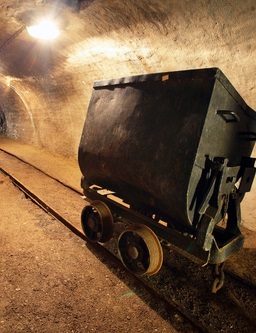Oxford says changing tide in mining could leave Australia stuck
 Global shifts are underway which could lead foreign investors to pull up stumps from Australia, stranding a number of projects and leading to the possibility of “mothballed or abandoned” local coal mines.
Global shifts are underway which could lead foreign investors to pull up stumps from Australia, stranding a number of projects and leading to the possibility of “mothballed or abandoned” local coal mines.
An empty coal mine is a rare site in Australia, but research suggests a change in direction in China could leave some assets marooned.
China currently accounts for about half of the world’s coal consumption, and it is this hunger that was the target of a probe into the immediate future by Oxford University.
The study assessed how coal demand could be influenced by rapidly changing environmental factors, such as dangers from the heavily-polluted air or efforts to counteract the emission and damaging effects of greenhouse gases.
Nowhere is energy efficiency more relevant than in China, and it appears the nation’s energy market may be beginning to realise this in its moves away from coal to better sources.
But China’s improvement could be to Australia’s detriment, which has a massive reliance on the continued purchase of coal and a future hinged on it too, with billions tied up in new projects specifically to deliver the goods to the Chinese market.
A prime example is in Queensland’ Galilee Basin, where a number of mega-mines are planned to fill the Chinese demand for resources.
The push for better methods and a reticence to undertake new ones in the traditional oil and gas style, could lead to several Australian sites sitting stranded or abandoned.
“Demand below expectations, and lower coal prices as a result, would increase the risk that coal mines, reserves and coal-related infrastructure could become mothballed or abandoned,” the Oxford University report into stranded assets states.
“Prices could also drop to the point where it is in the interests of miners to cease production, resulting in stranded mines and dependent infrastructure such as railways.”
“Policy makers need to wake up to these risks as well,” said the study's co-author Ben Caldecott.
The report suggests that governments should seek to limit the use of tax-payer money on coal-related works such as ports and railways which do not serve useful purpose when the coal and gas markets change.








 Print
Print